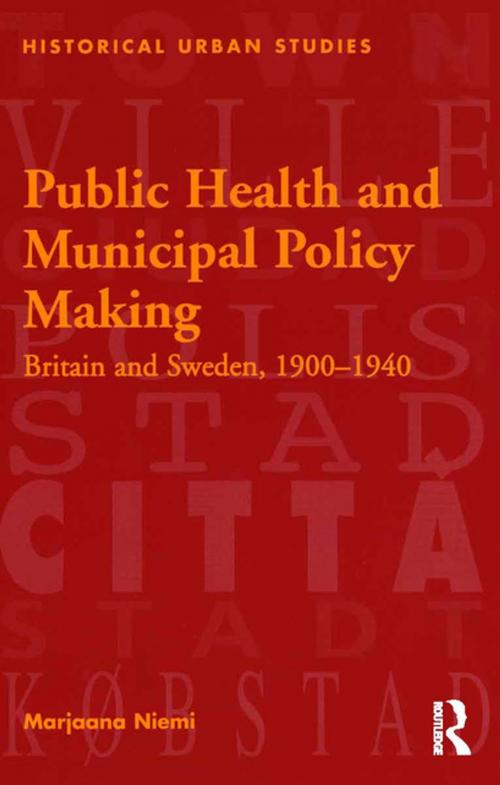| Author: | Marjaana Niemi | ISBN: | 9781317073680 |
| Publisher: | Taylor and Francis | Publication: | April 15, 2016 |
| Imprint: | Routledge | Language: | English |
| Author: | Marjaana Niemi |
| ISBN: | 9781317073680 |
| Publisher: | Taylor and Francis |
| Publication: | April 15, 2016 |
| Imprint: | Routledge |
| Language: | English |
Public health policies had a profound impact on urban life in the late nineteenth and early twentieth centuries, yet relatively few people took an active interest in the formulation of these policies. In this book Marjaana Niemi examines the impact of different political aims and pressures on 'scientific' health policies through the analysis of public health programmes in two case studies, one in Birmingham and the other in Gothenburg. By examining early twentieth-century campaigns concerned with infant welfare and the prevention of tuberculosis, the book provides illuminating insights into the relationship between public health and the regulation of urban life. Not only does the book analyse the processes whereby different political aims became embedded in these 'apolitical' health campaigns, but it also highlights the important part that the campaigns played in urban politics and governance. The political aims which public health campaigns advanced are explored by comparing health policies in Britain and Sweden, where officials were part of one public health community, enjoying close links, attending the same conferences and contributing to the same journals. The problems they dealt with were often similar and in both countries health authorities claimed scientific grounds for their programmes. Yet the policies they pursued were often strikingly different. Through examination of two different national approaches, the book does justice to the full complexity of the policy-making process and illuminates the wide range of factors that affected municipal policies.
Public health policies had a profound impact on urban life in the late nineteenth and early twentieth centuries, yet relatively few people took an active interest in the formulation of these policies. In this book Marjaana Niemi examines the impact of different political aims and pressures on 'scientific' health policies through the analysis of public health programmes in two case studies, one in Birmingham and the other in Gothenburg. By examining early twentieth-century campaigns concerned with infant welfare and the prevention of tuberculosis, the book provides illuminating insights into the relationship between public health and the regulation of urban life. Not only does the book analyse the processes whereby different political aims became embedded in these 'apolitical' health campaigns, but it also highlights the important part that the campaigns played in urban politics and governance. The political aims which public health campaigns advanced are explored by comparing health policies in Britain and Sweden, where officials were part of one public health community, enjoying close links, attending the same conferences and contributing to the same journals. The problems they dealt with were often similar and in both countries health authorities claimed scientific grounds for their programmes. Yet the policies they pursued were often strikingly different. Through examination of two different national approaches, the book does justice to the full complexity of the policy-making process and illuminates the wide range of factors that affected municipal policies.















